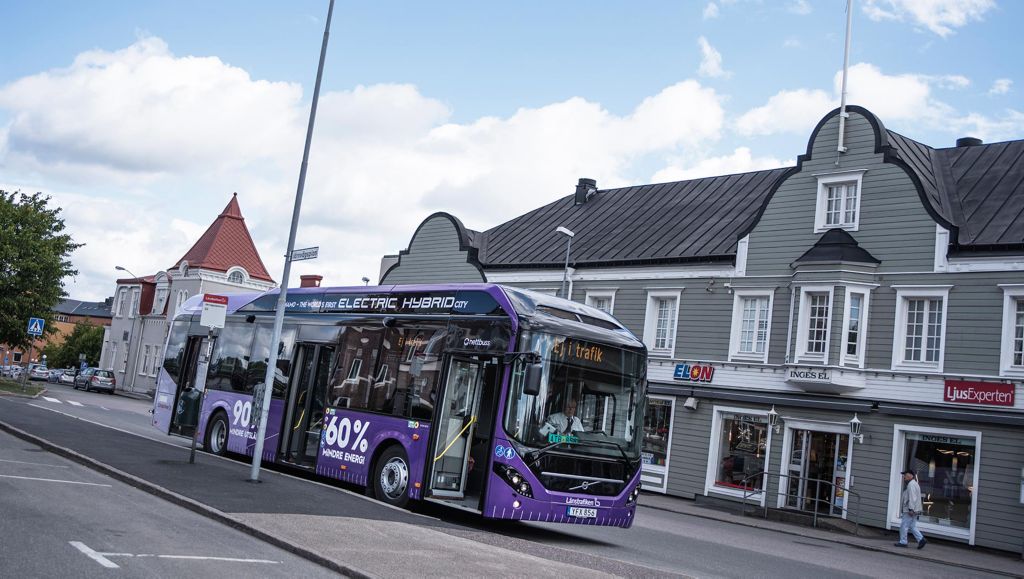Göttingen in Germany chooses electric hybrids from Volvo Buses


Göttingen’s drive for electrified bus operations is part of the city’s far-reaching aim to implement green public transport over the next few years. The public transport company Göttinger Verkehrsbetriebe has therefore decided to convert almost the entire public bus fleet step by step to electric buses. At present there are 19 bus routes in the city, several of which pass through the medieval city centre. It is planned to use the 12 m Volvo electric hybrids on routes 41 and 42.
The Volvo Electric Hybrid permits around seven kilometres of quiet, entirely emission-free operation between charges, corresponding to about 70 per cent of the distance of an average European route (about 90 per cent of all city bus routes in Europa have a length of max. 10 kilometers). Recharging of the bus batteries takes three to four minutes at the two line 41 and 42 routes’ shared end station in the Gustav-Bielefeld-Strasse. In addition, the batteries are trickle-charged every night in the GÖVB bus depot. The electric hybrid buses are also fitted with a small diesel engine, which offers extended range in line operation and also offers greater flexibility.
In addition to the three Volvo Electric Hybrid buses, the order includes Volvo’s system for battery monitoring. The charging station will be supplied by ABB. The charging equipment is based on the OppCharge open interface. OppCharge follows industry organisation ACEA’s recommendations for fast-charging. The intermediate re-charging is done with 150 Kw, but the charging station will already be designed to provide 300 kW in order to be prepared for the charging of all-electric buses.
In addition to electric hybrids, the Volvo Buses range of electrified vehicles includes hybrid buses and all-electric buses. In total the company has sold more than 3500 electrified Volvo buses globally.
Volvo 7900 Electric Hybrid
1) Estimated figure for a 10 km city bus route, compared with a Euro 6 diesel bus.
Opportunity Charging: OppCharge station by ABB